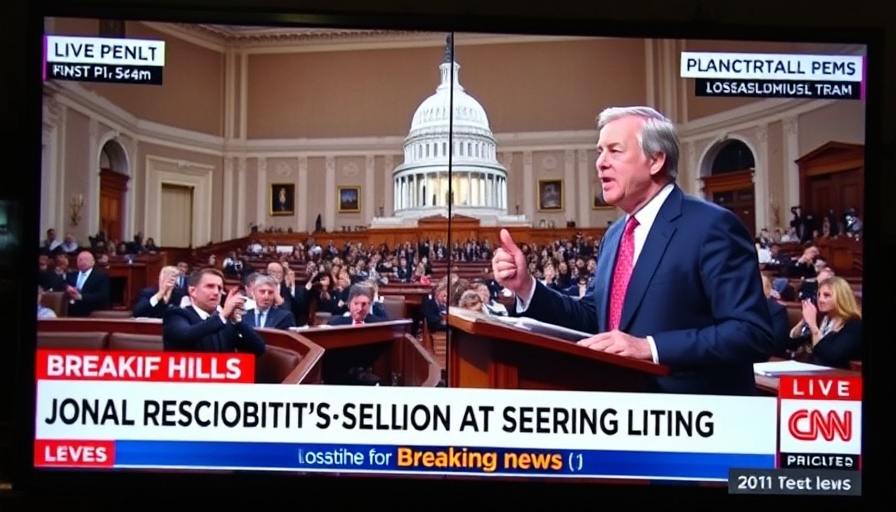
The Controversy Surrounding Sanctuary Cities
The recent hearing, which featured Representative Jim Jordan questioning four mayors from sanctuary cities, has reignited debates over immigration policies and public safety in America. An important moment occurred when Jordan pressed the mayor of Denver regarding the release of gang member Abraham Gonzalez, highlighting the challenges posed by local cities implementing sanctuary policies. These policies often prioritize community service over cooperation with federal authorities, raising concerns about the safety of citizens and the effectiveness of law enforcement.
In 'Chairman Jordan Questioning at Hearing on Sanctuary City Mayors,' the discussion dives into the serious implications of sanctuary city policies on public safety, prompting us to analyze the challenges and opportunities surrounding these contentious issues.
Examining the Denver Case
In the case of Gonzalez, who had a history of criminal behavior, the release procedure appeared to overlook the need for proper coordination with Immigration and Customs Enforcement (ICE). Jordan stated that ICE only received an hour's notice before Gonzalez was let go. Interestingly, ICE had agents present during his release, yet a confrontation ensued, leading to an assault on the agents by Gonzalez. This incident points to larger systemic issues within sanctuary city policies that may hinder law enforcement's ability to effectively manage public safety versus the legal complexities of immigration enforcement.
What's at Stake for American Families?
The debate over sanctuary cities like Denver has significant implications for American families. Ensuring safety for all community members should be paramount, but how is that achieved within the context of immigration policies? Families deserve protection from potential threats, especially those stemming from individuals with known criminal histories. The rise in crime due to flawed release procedures raises questions of accountability among city officials who prioritize policies that may compromise public safety.
Future Implications and Policy Changes
The fallout from incidents like the Gonzalez case could drive a call for policy reform surrounding sanctuary cities. Lawmakers may need to reassess how local policies interact with federal law enforcement. The safety of citizens should be an undeniable priority, and if sanctuary cities continue resisting cooperation with ICE, the consequences may not only affect public safety but also diminish trust in local governance.
In a time when cash flow and economic stability are paramount, these issues can affect community businesses and regional growth. Proper coordination between local officials and ICE can create a balanced approach that respects legal frameworks and upholds public safety—two necessary pillars for fostering thriving American neighborhoods.
The comments made by the Denver mayor, attempting to normalize the operational challenges as acceptable, could raise alarm bells among conservatives and everyday citizens demanding a safer neighborhood. As Jim Jordan indicated, common sense and basic safety must guide policies in our communities to ensure that freedom and security coexist in harmony.
If you care about safe neighborhoods and strong governance, consider advocating for better communication and policies that ensure citizens' safety first, aligning with values that support the economy and family integrity.
 Add Row
Add Row  Add
Add 




 Add Row
Add Row  Add
Add 

Write A Comment